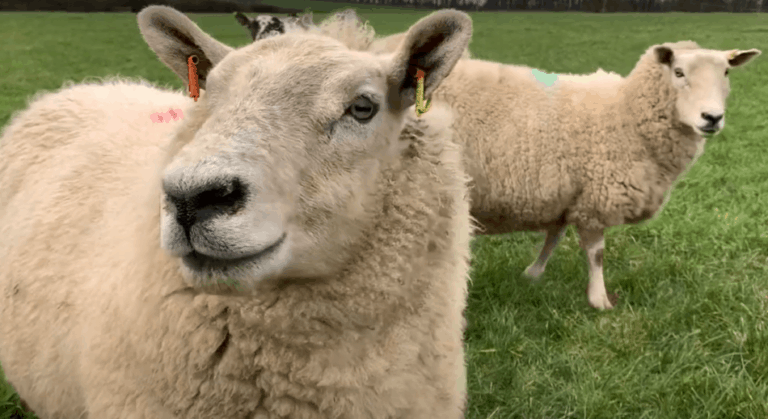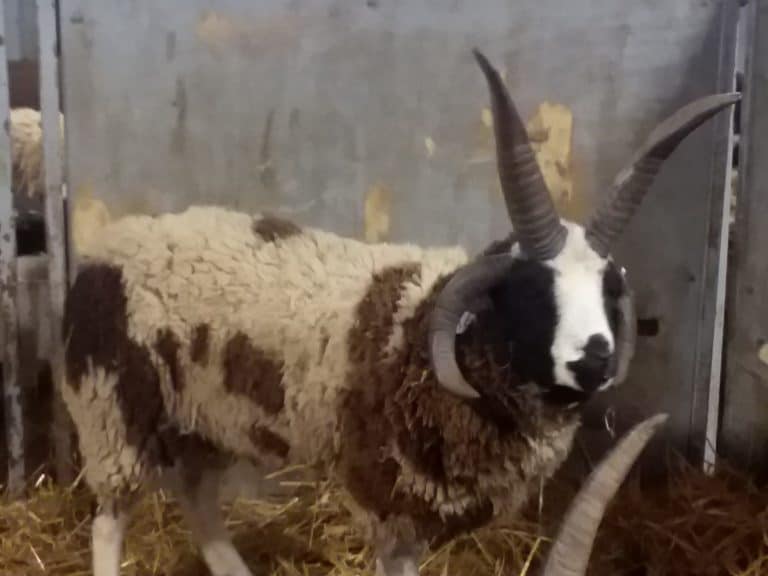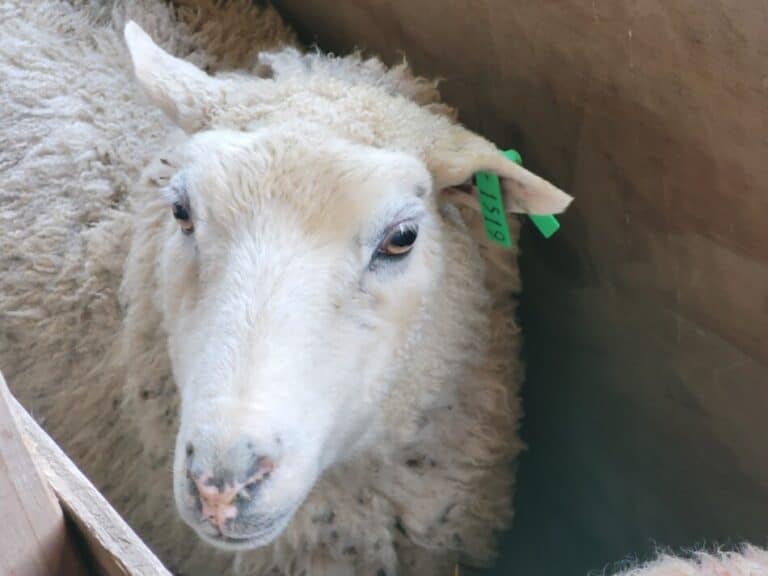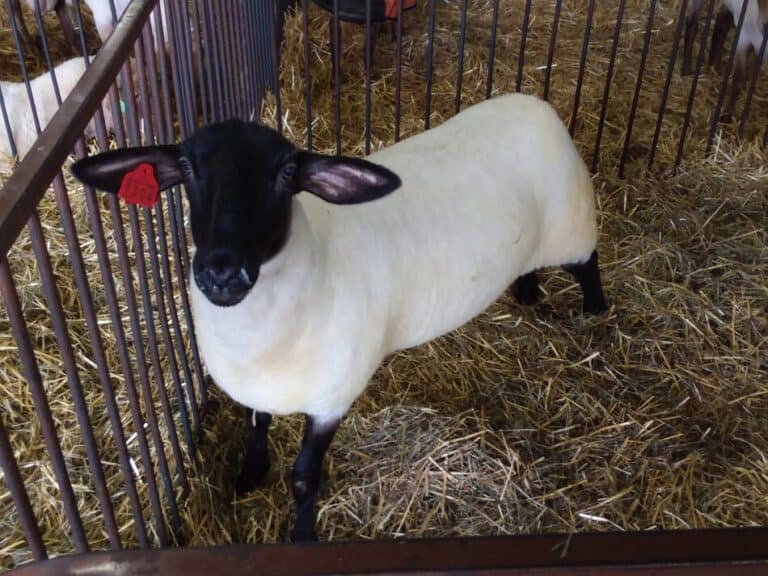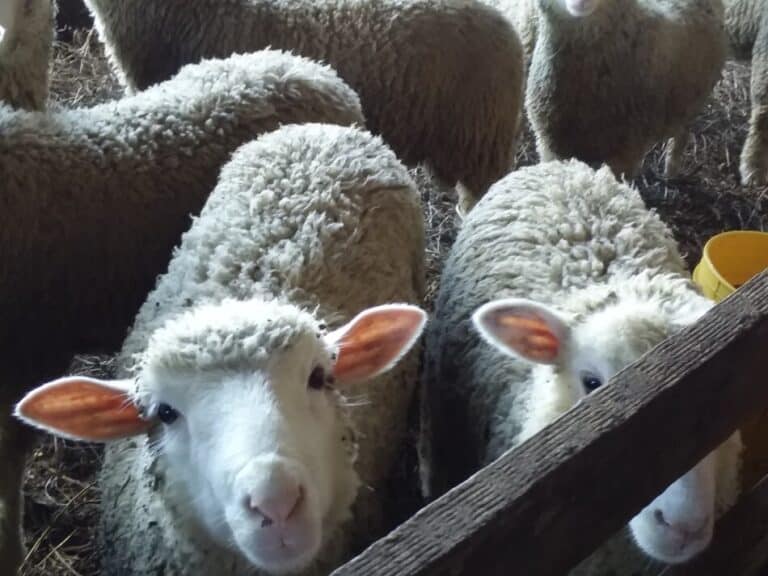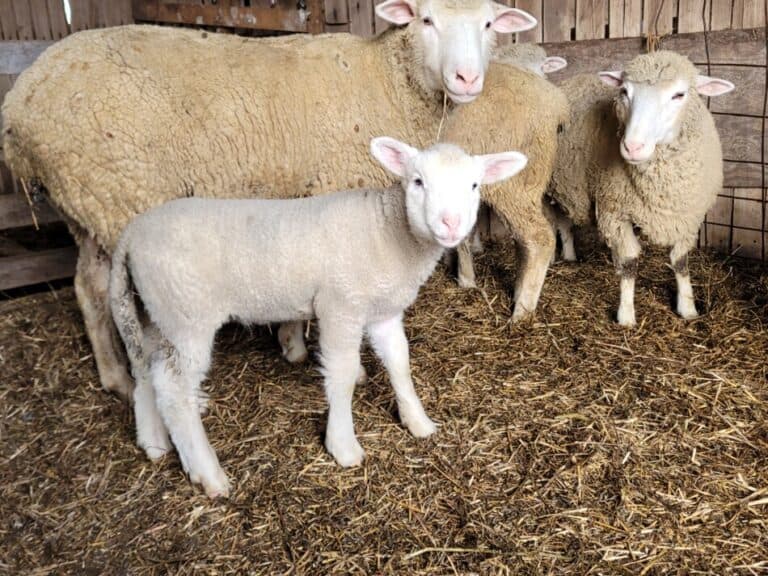Are Sheep Easy Keepers? 4 things you have to get right!
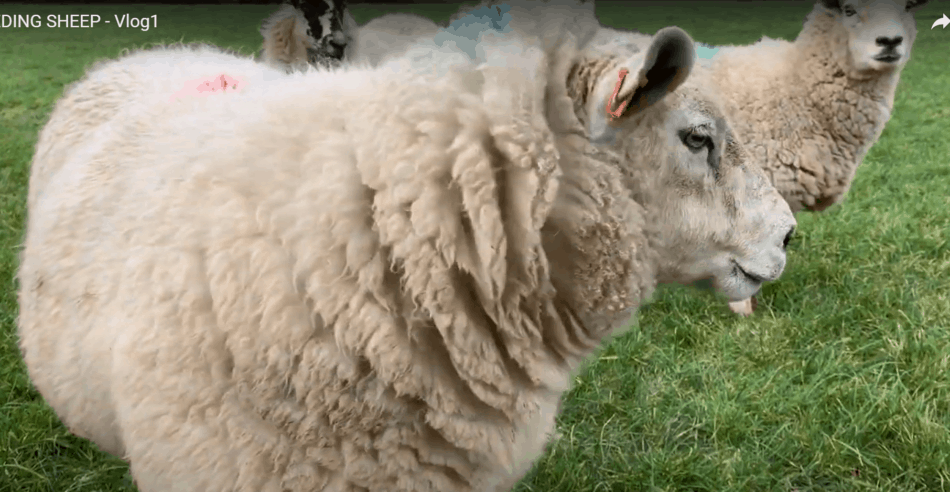
When you are considering buying a starter flock of sheep, you’ll want to know what you are getting into! Are your sheep going to need tons of time and attention or with basic care are they fairly easy keepers?
Sheep are easy keepers if you are timely with flock management and have the right feed and fencing available.
I’m sure you’ve heard the stories that sheep are hard to deal with or all they want to do is die. We hear these stories all of the time, but they are not true! We know because we raise sheep for a living!
Sheep are easy keepers provided you are a good manager
Believe it or not, sheep are fairly easy keepers, as far as day to day needs are concerned. All they need from you is good grass, salt and fresh clean water. On the hot days, add in some shade, as well.
On top of all this, you need to observe the flock, this is key. This observation (or lack of in most cases) is also the part where the unsuccessful and frustrated are falling short in their management.
There is a slight chance something else is the problem, but only slight. More than likely it’s not spending time with the sheep.
When you spend time just hanging out with your flock, you’ll learn what is normal and what isn’t. Once you know this, all you have to do is keep an eye out for unusual things and you are on your way to happy, low stress shepherding.
Sheep are wonderful animals, as long as you do a few key things right and head of any problems while they are still small and easy to fix.
Keep the sheep on the management schedule they are used to
Since you’re new to sheep, I’m sure you are thinking how to set all of this up. No worries, just do exactly what the breeder you bought your sheep from was doing.
Your new flock has been raised under a certain management plan up until this point. Keep using the same plan until you have a few years experience and can make adjustments that will suit your individual situation and farm.

Have your sheep outside and eating grass
This is the first step to easy keeping sheep. Let the sheep harvest the food so you don’t have to. Sheep are built to be outside. Sheep are built to thrive on grass. Get your sheep outside and eating grass!
One of the most amazing things about sheep is that they are great at growing on grass. Have some salt, shade and water and your sheep are good to go. It really doesn’t get much easier than that!
Our sheep are eating mainly grass from mid April to mid November, depending upon the year. The main flock of ewes is outside year round and fed hay in the non growing season.
For the winter, we have the ewes outside getting round bales of haylage (fermented hay), you could easily feed regular hay to your flock.
How Many Bales Do Sheep Need? will help you figure up your winter hay needs for your flock.
Lambs on grass are gaining well for less cost than hay
Since we raise sheep for a living, not a hobby, these ewes have to be economically getting the best feed for them when they need it or we lose money.
We make our money in the summer, by not having extra grain or hay expenses. Buying hay for the sheep year round is doable, but would not be profitable.
Grass is a huge deal to us and superior nutrition for the sheep, get some use out of yours. Be sure to rotate your pastures and check the flock twice a day! Sheep on pasture still need looked after.
Timely flock management is key to easy keeping sheep
Timely flock management is the key to successful sheep raising that the unsuccessful or frustrated folks are missing. Sheep have specific management needs that set the tone for the rest of the year.
None of these management activities are hard or complicated, but they are important.
Deworming is one aspect of sheep management
Get the deworming schedule right and your lambs will look good. Mess it up or skip it all together and the lambs will suffer. This is a small cost, like 25 cents per lamb per deworming, but so important.
The lambs get dewormed at 30 and 60 days old, which seems to set the stage for good growth and nice, chubby lambs in the pasture.
The ewes are more of an individual thing, some need dewormed, some don’t. Anyone that looks thin gets dewormed and has her number noted, so we can see if this is a one time deal or a pattern of parasite susceptibility.
Pre breeding and breeding season are key times in sheep management
A second key time for sheep is breeding season and what you did or didn’t do in the few weeks pre breeding season. Did you flush the ewes? Are the rams all in top shape, body and feet wise?
Were you ready for lambing or were you scrambling to find extra gates and buckets to make lambing jugs?
Daily observation of the sheep helps you determine flock needs
Sheep are fairly easy with day to day care, but they are not care free, no domestic animal is. Planning out what your flock needs and making these things happen in a timely manner will make you more likely to have happy sheep.
As you make your management plans, you’ll want to remember to observe the flock during your daily sheep activities. Are the dewormings working? How do the sheep look? Are the lambs gaining weight or are they thin?
If you are looking at the sheep and find that they are lacking care, fix the problem immediately, then follow up and see how the ewe or lamb is doing in a few hours and again before you go to bed.
Here’s a basic overview of all of the sheep management practices you should be thinking about, as suggested by the Maine Organic Farmers And Gardeners.
Easy keeping sheep have the right feed
We already talked about sheep thriving on grass, so summer feeding is taken care of, as long as your pasture is in good shape and you are rotating the grass so the sheep don’t overgraze or pass around parasites.
Sheep need high quality winter hay
Feeding the rest of the year for sheep is simple, sheep just need decent hay. A high quality first cutting will be great for adult sheep, a nice second cutting will work, too.
If they are bred ewes due to lamb in the late spring, you’ve got it easy. This means they will be on a maintenance diet for the winter, this is the easiest way to feed sheep in the winter.
What Is The Best Hay For Sheep? will help you figure out the hay needs of your sheep.
Lambs have high energy needs, especially if they are not on grass
If your ewes will lamb before the grass is growing, you’ll need to have a higher quality hay for them and maybe even some grain, to keep up their energy needs. Making milk takes plenty of good food!
Lambs in the non growing season will need higher quality hay, as well. To get the fast growth and great health that your lambs are capable of, they need high quality feed sources. The smaller they are the higher quality of feed needed.
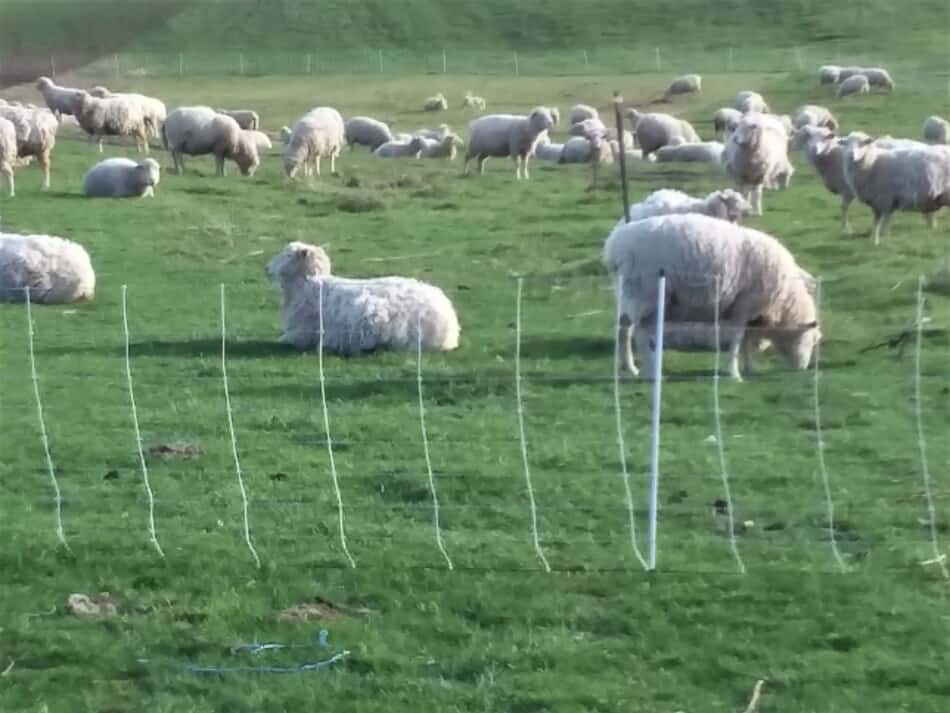
Sheep are easy to fence with the appropriate fences
Sheep are fairly easy to fence, as long as you have a fence for sheep. Now that may sound absurd to some, but stay with me on this. Sheep are easy to fence, but the fence must be made for sheep or goats, not cattle.
Sadly, single strand electric fence will not work as a perimeter fence for sheep, like it would for cattle. With cattle, you have to worry about reaching and smashing down the fence. Not so with sheep.
Sheep fences can be electric or permanent or a combo of both
Sheep can be easily kept behind electric netting, woven wire or other wire fences like welded squares and cattle panels, as long as the holes are small enough a sheep can’t slip through the opening.
Also, you can use make shift fencing like panels, metal roofing, etc. mainly whatever is laying around that you can put up as a barrier about four feet high.
Some shepherds can keep their sheep behind a few lines of electric wire or polybraid/polywire. Our sheep will not stay in that type of a fence, but there are shepherds whose sheep will.
We use electric netting for the sheep, year round
We keep our flock behind netting, year round. In the summer we move the flock daily and in the winter, we set up a winter paddock and feed the sheep in it until the grass gets growing for the spring.
We have some permanent fencing, mainly woven wire, but definitely not enough to contain all of the sheep. I love woven wire once it is up, until then it’s pricey and we’ll use netting instead.
Here’s a review of the Electronet we use, for anyone interested in the specifics. This netting works well for us and is our main way to fence the flock.
Image credit: close up picture of ewes at the beginning of the article is from The Sheep Game (YouTube)
